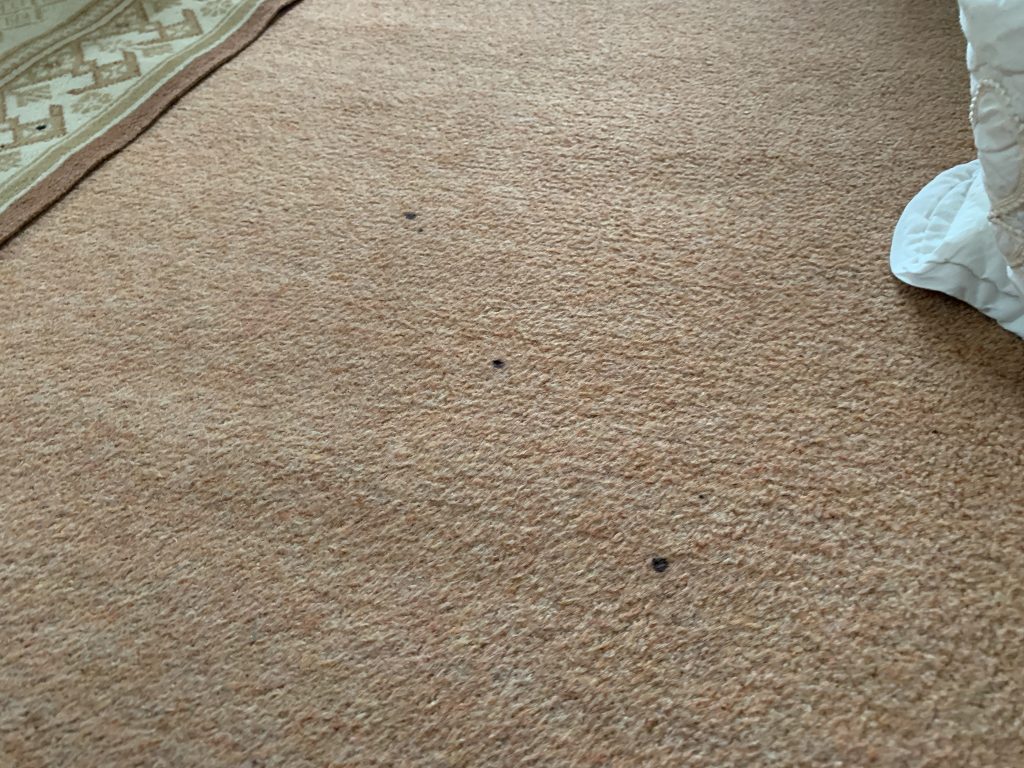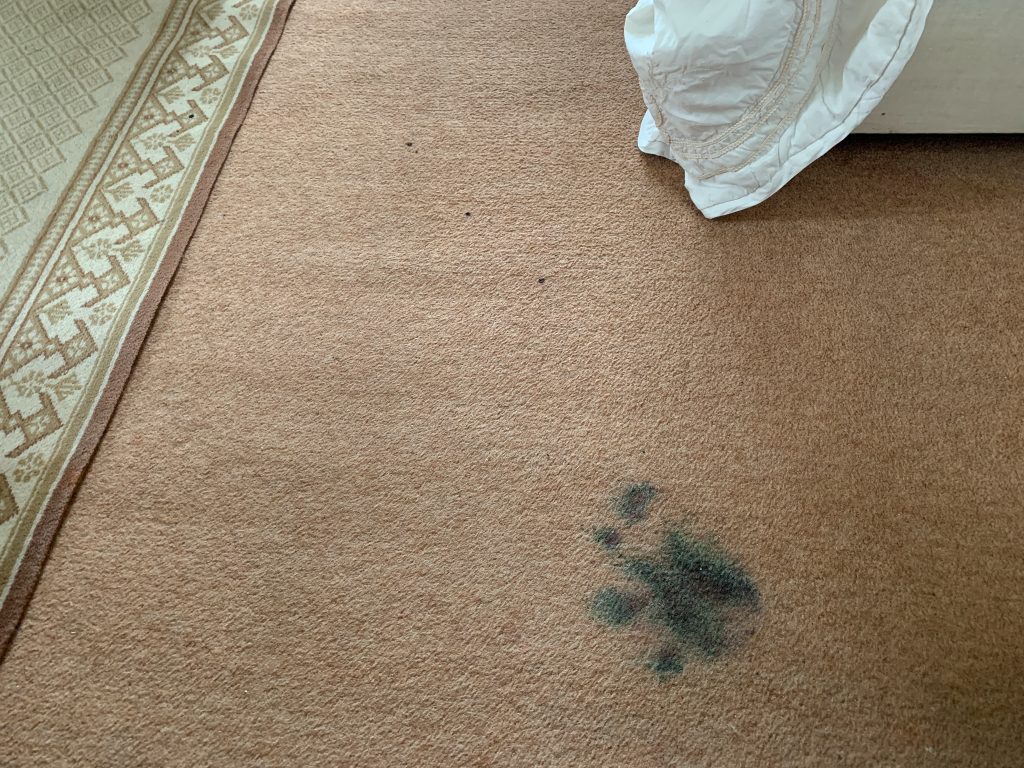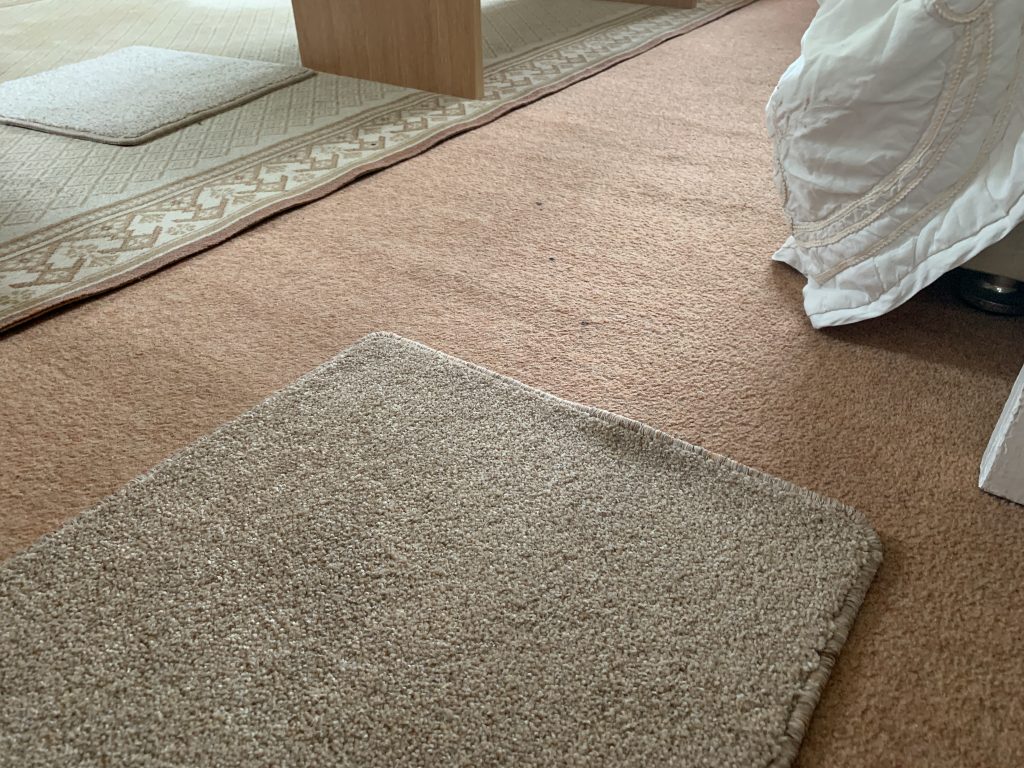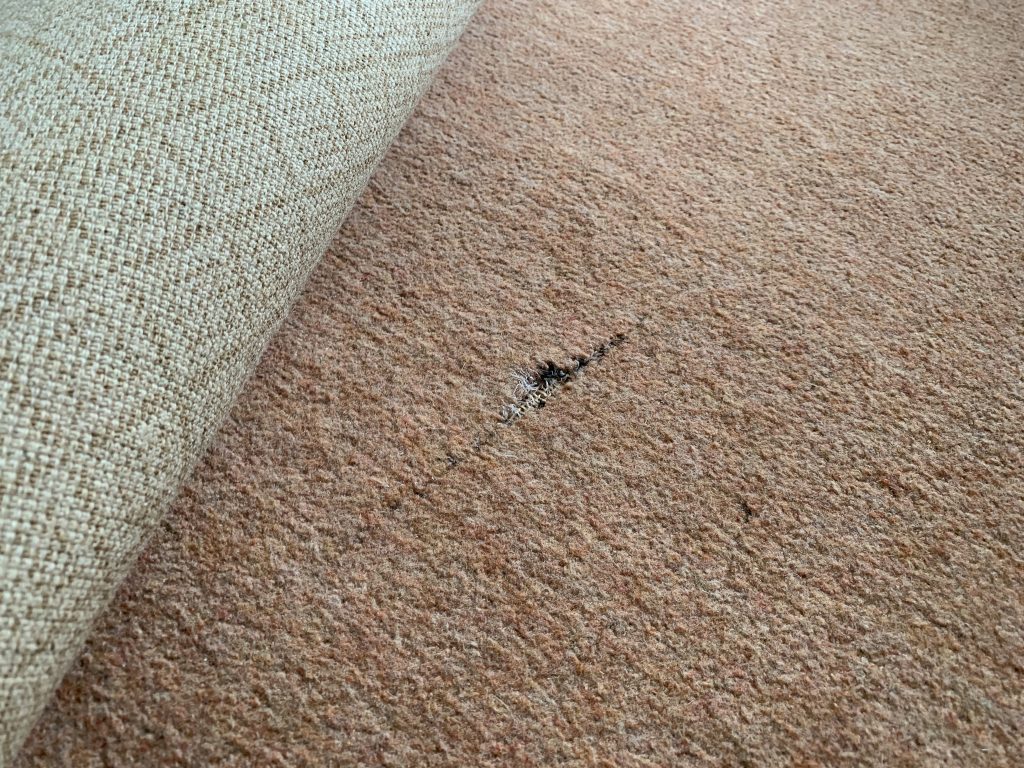Confession: is not optional
Does anyone remember this now infamous interview?
It’s difficult to catch senior politicians out like that – what an awful question for her to answer. She couldn’t possibly have answered it truthfully, but the answer she gave has dogged Theresa May for most of her time as Prime Minister – anything she said she would lose, because even dodging the question gets politicians in trouble.
I actually think she’s treated awfully by the media – and I wonder how different our country would be if she had been PM instead of David Cameron…
Can you imagine if she’d actually said the worst thing she’d ever done? Can you imagine if, as I speak, the worst thing you’ve ever done starts playing on the screen behind me, for everyone to see?
I shudder at the thought.
It is remarkable that one of the towering giants of the Bible, described as a man ‘after God’s own heart’, who wrote nearly half of the longest book in the Bible – this man, King David, had his worst sin, not splashed across a video screen, but recorded in the Bible, the most published, bought, popular and read book in history. Ouch.
David slept with a married woman, got her pregnant, and then arranged for her husband – one of his friends and top soldiers – to be killed so no-one would find out.
Sometimes people’s response to sin is this: ‘I’m a good person because I’ve never done anything like that.’ Well I should hope not – if you have, you should really be in prison for murder, rather than sitting here in church.

If you visit the vicarage lounge, you’ll see that the carpet has four little dots of printer ink on it. Unfortunately I had an accident while carrying a printer – top tip: carry them flat, not on their side. They’re not too bad – I mean, the carpet is blemished, but what’s a few dots among friends?

However… that’s not all there is. That’s where I held the printer, until I realised what was going on.
Friends, if the carpet represents our life, we all do things that leave little blobs of permanent ink. These are (mostly) quite easy to live with – so much so that we barely even notice them – I had totally forgotten about the small dots, until I went to take a photo of the big blob on the carpet; I don’t even see them any more.

But I also don’t see the big stain. How’s that, you ask? Here’s a close-up of the stain. And here’s why I don’t see it any more. Mark very kindly found us a couple of old carpet squares – you’ll notice it’s squares (plural) because, if I zoom out, you’ll see in the top left-hand corner that I’ve haven’t shared the full horror – the other square covers up even more ink stain, as I walked across the room dripping ink.

And what’s even worse is that the big rug in the middle of the room is only there because there’s a gash in the centre of the carpet.
Friends, our lives are like the vicarage carpet. There’s a sentence I imagine no-one has ever said before. All our lives are blemished, stained or ripped – some blemishes are big, some are small. Some are easy to ignore because they are small, or because there are lots of them so we get used to them – some are easy to ignore because we cover them up and pretend they aren’t there.
But they are: confession is… not optional.
Confession: is not easy
That’s the first thing – the second thing is that confession is not easy. It is at this point that I should probably have shown you some photos of the vicarage garden, but I’m too ashamed. In my very limited experience and knowledge of gardening, there are mostly two kinds of weeds.
The first kind are easy to pull up, but nearly impossible to remove entirely: every time you get rid of them, some more spring up in the clear earth you’ve left behind. Plus, there are loads of them, so it takes a long time.
The second kind are so established they are impossible to pull up: you need to dig them out or, as is the case with some of the weeds in the garden, they’ve been there so long you need a power drill to turn the trunk and roots into sawdust.
Weeding is not easy – and neither is confession. This is one of the main reasons why we learn to ignore the stains, or cover them up – it is not easy to deal with them, it takes a lot of effort and can be painful. The problem is, unlike stains on a carpet, the sin which stains our hearts and our minds really matters.
Sin affects us in ways we don’t even realise, we do things we know we shouldn’t – and sometimes don’t even want to do – it creates a barrier between us and other people – and so on.
Perhaps instead of talking about stains on a carpet – which can be ignored – I should have talked about stains on a wedding dress: because they can’t be ignored, and because God is preparing his people, the church, to be Jesus’ bride, pure and clean and holy.
So the question is: how do we deal with sin properly, instead of ignoring it or hiding it? The word we use for that, is confession.
I ‘confess’ that when I hear that word I can’t get Monty Python’s Spanish Inquisition sketch out of my head… ‘confess’! Maybe you weren’t expecting (!) that… The good news is that true confession can involve both cushions and comfy chairs (!) – you won’t get most of what I’ve just said if you haven’t seen the sketch… let’s move on.
Confession: starts with God (1-2)
Have a look in your Bibles with me at Psalm 51. Who is verse 1 about? God – not David and his sin! Verse 1 is about God, who has mercy, unfailing love and great compassion. That means God feels the pain and suffering of our sin, he loves us anyway and always, and he wants to do something about it.
I don’t know what your picture of God is, but the way we think about confession is hugely affected by the way we think about God. If we think about God as a penny-pinching, tight-fisted, angry and petty dictator, confession is a demeaning exercise in begging.
But friends, listen to how David talks to God:
Have mercy on me, O God,
Psalm 51.1-2 (NIV)
according to your unfailing love;
according to your great compassion
blot out my transgressions.
Wash away all my iniquity
and cleanse me from my sin.
God is full of mercy, unfailing love and great compassion – even though David has done some really bad stuff. God’s attitude towards us doesn’t change, no matter what we’ve done, and whether or not we confess.
It’s a little bit like this. Here is my coffee cup hold it up – after it’s had coffee in, it needs cleaning. If I run it under a tap, will it get clean? Not at all, because it is completely sealed – that’s the point! I need to remove the lid remove it, and then I can clean the cup.
Friends, God’s love and mercy and compassion are like a tap that is constantly running, ready to fill and clean us. We are like the cup – and confession is removing the lid, revealing and opening up the mess and the dirt inside, so God can clean us.
Did you spot that in verse 2? Confession doesn’t have any effect on God – his love and mercy and compassion keep flowing anyway – confession means opening ourselves up to that cleansing flow, which washes away our iniquity, our sin, the stains deep within.
Confession isn’t about making God love us more, but allowing him to wash and to cleanse us.
Confession: means being honest (3)
Little Zack ran screaming into his parent’s bedroom. ‘I dropped my toothbrush into the toilet!’ he wailed.
‘Don’t worry,’ his mummy replied, as she went through into the bathroom, fished it out and threw it into the bin.
Zack stood there a moment, then ran into the bathroom and came back with his mummy’s toothbrush, ‘We’d better throw this one out too then, because it fell into the toilet last week.’
Confession means being honest.
David knew full well what he had done – he had been found out by the prophet Nathan. He could not deny it – the carpet square was gone, the stain was there for all to see.
For I know my transgressions,
Psalm 51.3 (NIV)
and my sin is always before me.
Throughout the ages, Christians have realised that reflection, or self-examination, is a critical thing for Christians to learn. Human beings are so good at hiding the truth, from ourselves as much as from others, that in order to grow in faith, we need to be honest about the things that are holding us back.
How often, when we have done something wrong, do we place the blame squarely at someone else’s feet? Of course, because they aren’t perfect either, it is likely they are in the wrong too – which is how we are able to convince ourselves they are totally in the wrong. Like the old joke goes, in the garden of Eden, Adam blamed Eve, Eve blamed the snake, and the snake didn’t have a leg to stand on.
Human beings are excellent at shifting blame, deflecting attention away from our own sin and failings, hiding our shame and regret.
Therefore, confession starts with honesty. Are you willing to take a long, hard look at yourself? The time of confession on a Sunday is always hard, because it is over in the blink of an eye, and the words trip off our tongues so easily – there is little time for true self-examination and honesty.
That needs to be done not in a church on a Sunday. It’s not easy, but it’s so important – because without opening ourselves up fully, we cannot be fully cleansed by God’s overflowing love and mercy.
Confession: helps us see with God’s eyes (4-5)
Our culture is all about reassuring people that who they are is ok – almost the worst thing you can do, one of the only things we may not do publicly, is judge someone else.
And you know what? We shouldn’t pass judgement on other people, because we are no worse or better than they are. All of us are in the same boat: stained, broken and damaged by sin.
The problem comes when we apply that same moral standard to God – because unlike us he isn’t damaged by sin, he is perfect, and he knows everything about us – so he alone is in a position to pass judgement on our actions, good or bad.
Against you, you only, have I sinned
Psalm 51.4 (NIV)
and done what is evil in your sight;
so you are right in your verdict
and justified when you judge.
‘Ah yes,’ you may say, ‘Of course that’s true for David – he had just committed murder! If God is just he must punish David for that. I, however, have not murdered, so no-one can judge me.’
David has an answer for that:
Surely I was sinful at birth,
Psalm 51.5 (NIV)
sinful from the time my mother conceived me.
The truth, whether you like it or not, is that everyone is sinful – we are fearfully and wonderfully made, as David says elsewhere, but we are also all damaged and broken by sin, even before we are born.
Children are most definitely not innocent, as any parent will attest – theologically this is called original sin – that sin is part of who we are, not something we do.
The more we focus on God’s mercy, the more we learn to reflect on ourselves, the more honest we are about our brokenness, the more we will learn to see sin with God’s eyes, and realise how far we have fallen, how much we deserve his punishment.
This is not a pleasant place to be. You can hear the pain in David’s words – far too late he feels the pain and hurt his actions have caused, he sees what he did in the light of God’s perfect love and compassion, and he cries out to God for mercy.
That burden of pain is a gift from God. Let me say that again, in case you weren’t listening: that burden of pain is a gift from God. Why? Not because God wants us to wallow in misery, but because when we feel the pain that God and others feel as a result of our sin, we are finally in a place where our ‘sorry’ means something.
My sacrifice, O God, is a broken spirit;
Psalm 51.17 (NIV)
a broken and contrite heart
you, O God, will not despise.
Seeing with God’s eyes is a gift, because a broken and contrite heart is one ready to receive God’s forgiveness, to be cleansed and made new.
Confession: brings joy and gladness (7-8)
This is where God wants us to be: not wallowing in self-pity and despair (that is worldly sorrow), but ready to receive his forgiveness (that is godly sorrow).
Cleanse me with hyssop, and I will be clean;
wash me, and I will be whiter than snow.
Let me hear joy and gladness;
let the bones you have crushed rejoice. …Restore to me the joy of your salvation
Psalm 51.7-8 & 12a (NIV)
Friends for the last 20 minutes we have been thinking about the gospel. ‘Isn’t the gospel, “God so loved the world…”?’ I hear you ask. Actually no, the gospel is daily repentance and forgiveness. That is the good news: that there is life and joy and cleansing for all, no matter who you are and what you have done.
This is why David talks of joy and salvation – he didn’t deserve either for what he had done – yet the scandalous good news is that no-one is too far away from God to receive his forgiveness and joy and salvation. All we need do is open ourselves up to receive it.
Confession: is a fresh start (10 & 12)
But there’s more…
Create in me a pure heart, O God,
and renew a steadfast spirit within me. …grant me a willing spirit, to sustain me.
Psalm 51.10 & 12b (NIV)
God doesn’t simply promise to wipe away the stains of sin, but to give us a pure heart, a steadfast and willing spirit, to keep us going along the way.
Friends, do you not long to be filled with joy and gladness? Do you not long to have a pure heart, a steadfast and willing spirit?
There will always be stumbles along the journey, challenges and behaviour we struggle to overcome – nobody is perfect this side of heaven – but God in his infinite patience doesn’t give up on us. He wants us daily to come to him in repentance, to receive his forgiveness – so we may grow stronger and deeper in faith, more and more like Jesus.
That is God’s goal, his call, his plan for your life – and it starts with daily repentance and forgiveness.
